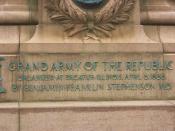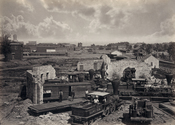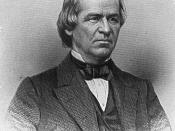Elliott Farrington
History 633.01
Apr. 21, 2013
Reconstruction: The Historiography of a Pivotal Era in American Society
It has often been stated that it is the duty of all historians to place facts about the past into an objective, cohesive chronological narrative that will help guide others to solve the problems of the present and future. It is important for the historian to have the ability to sort out the distorted facts from ones that are correct. However, what happens when the correct facts are in disagreement? This presents the challenge of postmodernity. According to Mark T. Gilderhus, objectivity poses a problem "because no historian can ever form statements about anything without the influence of bias, prejudice, self-interest, and personal preference. In essence, there is no object to behold". Therefore, to study the history of particular eras, it is necessary to strive for a clear, selective focus and for an integrated, overall view.[2:
Gilderhus, Mark T. History and Historians: A Historiographical Introduction. (Saddle River, New Jersey: Pearson Education Inc, 2007). p 116]
A great example of this challenge can be seen in the period directly following the American Civil War in 1865 known as the Reconstruction Era. According to Ahmed Shawki, author of Black Liberation and Socialism, "While the Civil War destroyed slavery in the South, it did not immediately establish a new political and economic order in its place. The next three decades witnessed an intense, often violent, political struggle to determine the character of the South." In knowing this, the goal of this essay is to examine the historiography of the Reconstruction Era and how both viewpoints and scholarship following the era differed throughout the course of history. [3: Shawki, Ahmed. Black Liberation and Socialism.(Chicago, Illinois: Haymarket Books, 2006). p 63]
For the purposes of this essay,


